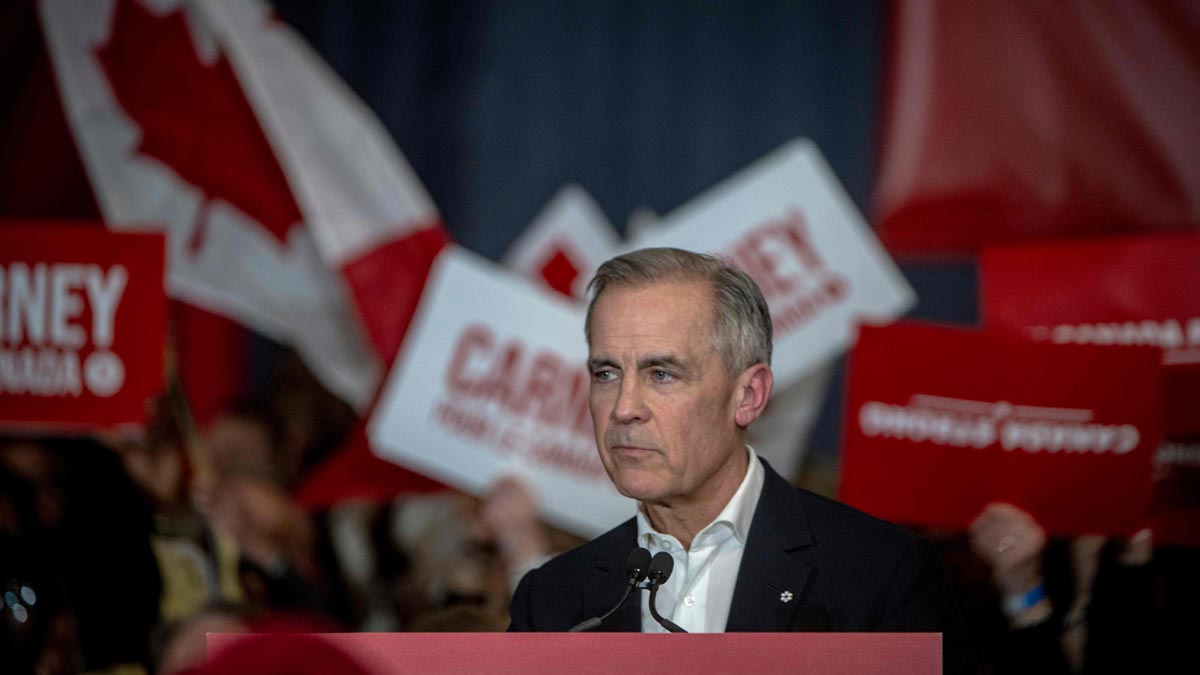Canada elections: Liberals projected to form government riding on Trump threat effect
 Leader of the Liberal Party of Canada Mark Carney gives a speech to his supporters during a rally at the Grand Quay of the Port of Montreal | AFP
Leader of the Liberal Party of Canada Mark Carney gives a speech to his supporters during a rally at the Grand Quay of the Port of Montreal | AFP
Canada's Liberal Party led by Prime Minister Mark Carney is projected to form the government, for the fourth time, according to reports. However, they are expected to only form a minority government, depending on the picture from the westernmost province of British Columbia, where polls closed last.
The Liberals needed to win 172 of the House of Commons 343 electoral seats so as to govern without the support of a smaller party. As of now, they were leading or elected in 156 districts, followed by the Conservatives with 145, according to CTV.
The mandate marks the comeback of Liberals, who were mired in deep trouble, leading to the resignation of former Prime Minister Justin Trudeau. Following this, the Liberal Party chose Mark Carney, a political novice, as the party leader. Ten days after he was sworn in, Carney called an election.
As for the Conservatives, the right-of-centre party, made huge leaps but ended up behind the Liberals. But, going by projections, its leader Pierre Poilievre may not have lost his bid to be the next prime minister.
Trump factor
For the Liberal Party which was headed to a complete collapse, Donald Trump came as a saving grace. Trump’s tariffs and threats of annexation shaped the federal election in favour of Liberals as nationalistic fervour surged.
"We were dead and buried in December. Now we are going to form a government," David Lametti, a former Liberal Justice Minister, told broadcaster CTV. "We have turned this around thanks to Mark," he said.
Trump continued to taunt Canadians on the eve of elections too, suggesting on social media that he was on their ballot and repeating that Canada should become the 51st state. Angry Canadians rallied to the polling booths, with a record 7.3 million Canadians cast ballots before election day.
Shachi Kurl, president of the Angus Reid Institute, a polling firm, told Reuters the Liberal win hinged on three factors."It was the 'anybody-but-Conservative' factor, it was the Trump tariff factor, and then it was the Trudeau departure ... which enabled a lot of left-of-centre voters and traditional Liberal voters to come back to the party," Kurl said
As for Poilievre, the Trump factor cost him the Prime Minister post. Historian Robert Bothwell said Poilievre appealed to the same sense of grievance as Trump, that some viewed him as 'Mini Trump'.
"The Liberals ought to pay him," Bothwell added, referring to the US president. "Trump talking is not good for the Conservatives."
World